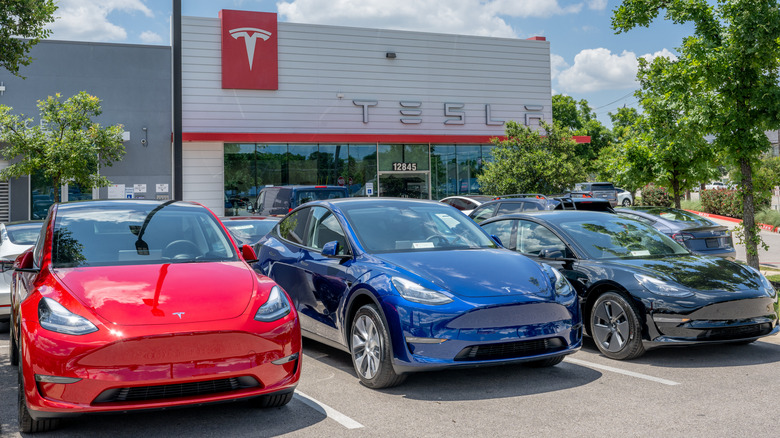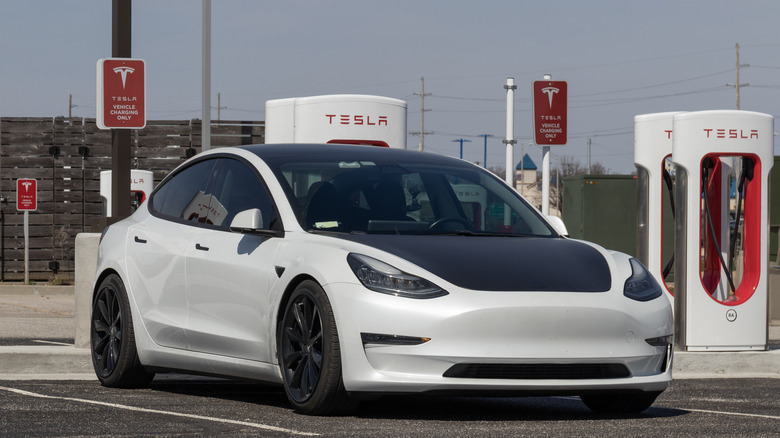
Brandon Bell/Getty Images
Tesla’s January 2024 prediction about the company expecting «notably lower» sales growth in 2024 is likely coming true. The company recently shared the number of cars it produced and delivered in the first quarter of 2024, and both figures show a significant drop compared to previous quarters.
While Tesla produced a total of 433,371 cars from January through March, only 386,810 of them ended up being delivered to customers. These numbers are significantly down compared to figures from Q4 2023, when Tesla delivered around 423,000 vehicles. Many analysts expected Tesla to deliver 457,000 vehicles in Q1 2024 — a significantly higher figure compared to what the company actually delivered.
What is concerning for Tesla is the fact that these declines in shipments have come despite the company being on a price cut spree all through 2023. In March 2024, Tesla also announced a temporary $1,000 price cut on the Tesla Model Y. Despite these moves, Tesla has been unable to quell the decline in demand for its cars (and EVs in general).
Tesla, on the other hand, attributes these sales decline to several factors — the first being the production ramp of the updated Model 3 at the company’s Fremont factory in California. The ongoing conflict in the Red Sea region also affected delivery timelines. Production was affected at Tesla’s Gigafactory in Berlin specifically following an arson attack and week-long shutdown of the facility.
In January, Tesla forecast a decline in production and delivery numbers as the company focused its efforts on a massive global expansion and the rumored Tesla Model 2. Tesla expects production and deliveries to gather momentum once these projects are seen though.
The end of price cuts?

Jetcityimage/Getty Images
On the very second day of the second quarter of 2024, Tesla announced a rollback of the price cuts it announced earlier in 2024. To begin with, the Tesla Model Y is now $1,000 more expensive across all trim levels. It’s not just the U.S. market that is affected by these price hikes.
In China, one of Tesla’s biggest markets, the prices of the Tesla Model Y Long Range, as well as the Model Y Performance variants, have been hiked by up to 5,000 Yuan. The Model Y has also become more expensive in Europe, with the prices of the vehicle going up by roughly 2,000 euros across the continent.
Interestingly, Tesla’s decision to roll back price cuts comes at a time when most of its competitors are trying several things (price cuts included) to shore up demand for their EVs. Tesla’s chief rival in the Chinese market, BYD — a company that Elon Musk once ridiculed — has been waging a price war in the country. Other players in the country, including the likes of NIO and Xpeng, have also been on a price-cut spree, further affecting Tesla’s deliveries in these markets.
While it would be a while before the effects of Tesla’s decision to jack up the prices of some of its vehicles begin to show, that may not be the only reason for the lack of demand for Tesla’s vehicles of late. Recent reports indicate that the antics of Tesla’s eccentric CEO Elon Musk may actually be driving away potential Tesla customers — prompting them to look at the company’s rivals.